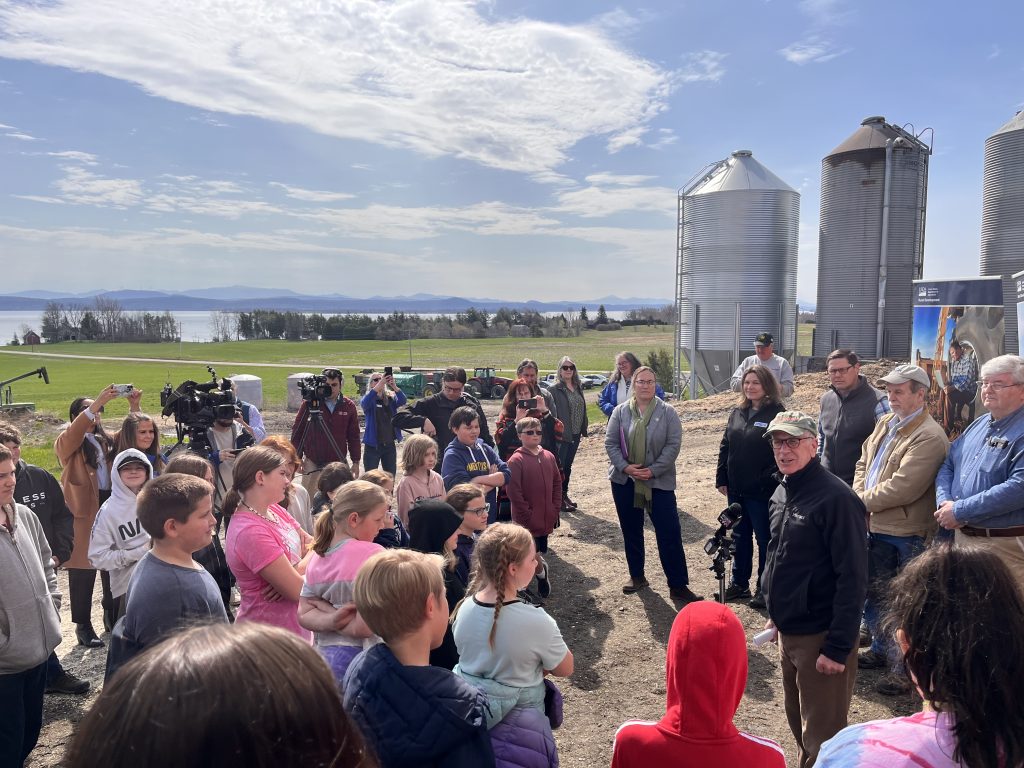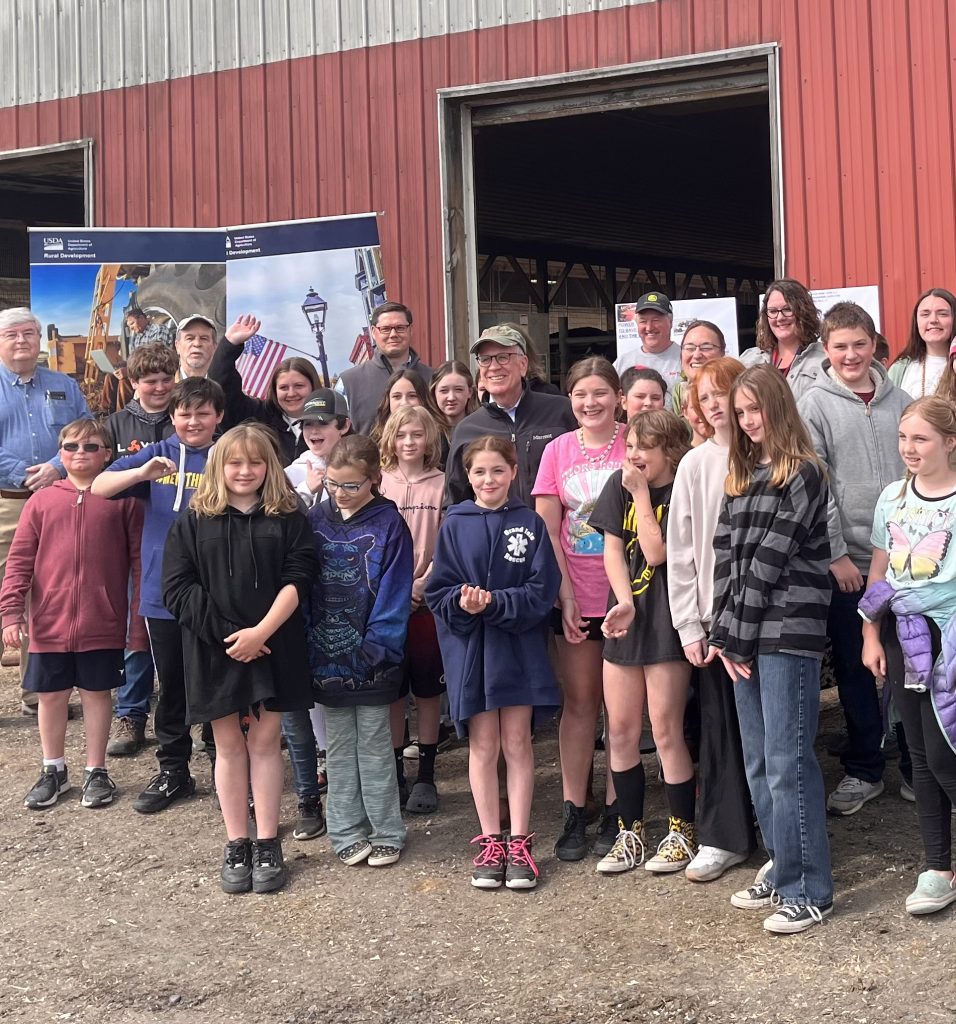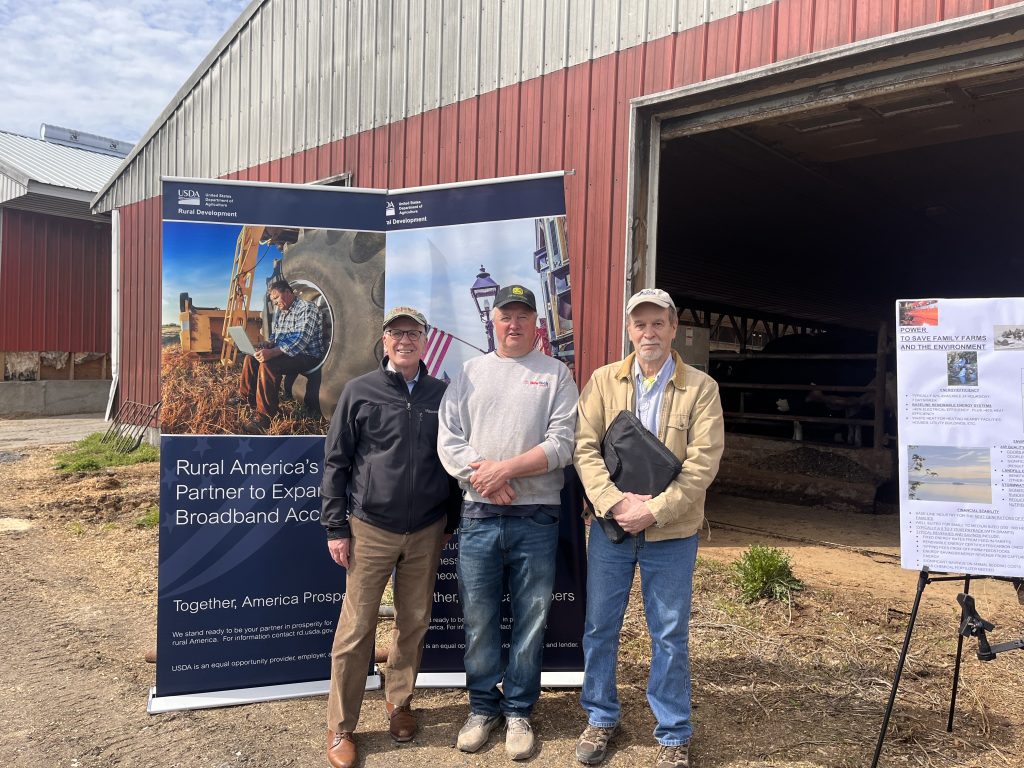GRAND ISLE, VT — Senator Peter Welch (D-VT) joined United States Department of Agriculture (USDA) Rural Development State Director Sarah Warring, National Resources Conservation Services (NRSC) State Conservationist Travis Thomason, and Vermont farmers, conservationists, and community members, to celebrate Earth Day at Savage View Farm in Grand Isle, Vermont.
Run by father and son duo Dwight and Ryan Bullis, Savage View Farm will soon be home to an anaerobic digester, funded by the USDA’s Rural Energy for America Program (REAP). The REAP program received a significant funding increase from the 2022 Inflation Reduction Act, which Senator Welch helped pass as a member of the U.S. House.
“Earth Day is an opportunity to recommit to fighting climate change and protecting our environment,” said Sen. Welch. “Our farms can play a critical role in those efforts, but they can’t do it without help. Programs like REAP are essential — they bring our agricultural and rural communities into the fight for a greener future. That’s what’s happening here at Savage View Farm, and in rural communities across the country where REAP projects are underway. It’s critical work — and I will do everything I can to support it in the upcoming Farm Bill.”
Digesters convert animal waste into biogas and, in so doing, reduce greenhouse gas emissions from livestock. The work REAP is doing at Savage View Farm exemplifies the values of Earth Day: protecting our environment and building a greener future for the generations to come.
“In our ongoing mission to provide Vermont farmers and agricultural businesses with clean-energy solutions, it is essential that we work with innovative partners on the ground,” said Sarah Waring, State Director for USDA Rural Development. “Senator Welch has been a champion of environmental problem-solving from the start of his career, and the dedication and commitment of State Conservationist Thomason and his team at NRCS can be seen on farms throughout our state in the form of carbon and phosphorus mitigation, healthier soils and more energy efficiency. With a new digester, Dwight Bullis and Savage View Farm will generate clean energy for Vermonters while streamlining its operation and saving $250,000 annually. Under the Biden-Harris Administration and the historic Inflation Reduction Act, climate-smart technologies are defining the path forward for rural communities here and throughout the country.”
“Farms like Bullis Savage View Farm are a testament to the continued value of climate-smart agriculture, public-private partnerships, and investment in our rural communities,” said Travis L. Thomason, NRCS State Conservationist. “Through programs like the Environmental Quality Incentives Program (EQIP), USDA can get to work where the rubber meets the road and improve the lives of farmers, the communities they live in, and the populations their work supports. USDA is proud to be a partner to farmers like Dwight Bullis, and others like him. Equally significant is the support we receive from our elected officials like Senator Welch, and we look forward to many more partnership opportunities to support the agricultural communities in Vermont.”
Through REAP, Savage View Farm received more than $440,000 to build an anaerobic digester to convert waste from the 750-head dairy farm to biogas. The project will realize significant reductions in methane gas emissions from livestock waste, as well as improvements to local water quality. Under the Inflation Reduction Act, REAP received an additional $1.177 billion in funding to support projects across the United States, including digesters, solar arrays, wind turbines, and energy efficiency retrofits. As chair of the Senate Agriculture Committee’s Subcommittee on Rural Development and Energy, Sen. Welch will continue to push for greater support for REAP and other comparable programs that help rural communities reduce greenhouse gas emissions and energy usage.
To learn more about REAP, please click here.
##



